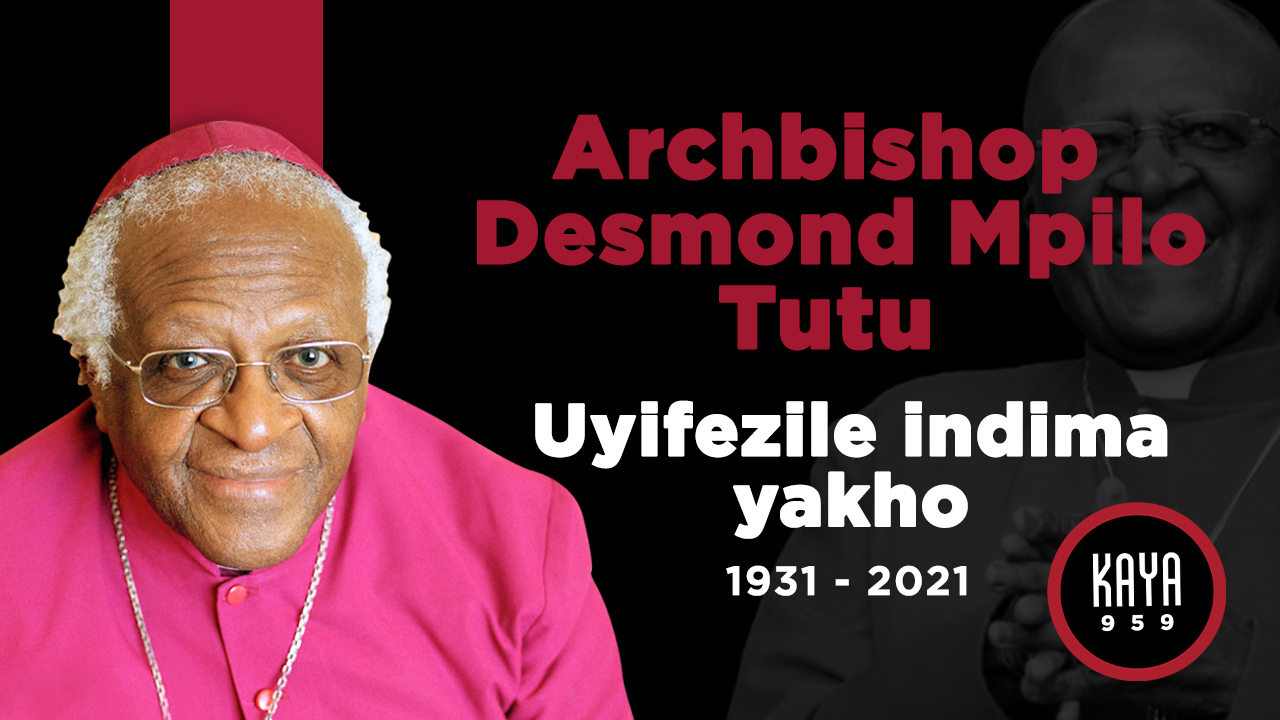


Archbishop Desmond Tutu is a renowned Anglican theologian and human rights activist.
Desmond Tutu was the Emeritus Archbishop of Cape Town. A renowned Anglican theologian and human rights activist who played a central role in the anti-apartheid campaign in South Africa. He was the first black African to hold the posts of Bishop of Johannesburg and Archbishop of Cape Town. After Nelson Mandela was freed from prison in 1990, the two men led negotiations to create a multi-racial, democratic South Africa. Tutu chaired the Truth and Reconciliation Commission which investigated human rights abuses on both sides during the apartheid era. He has also spoken out on gay rights, the Iraq war and the political situation in Israel and the Palestinian territories. But his socialist political stance has made him a divisive figure: he remains very popular with many black South Africans and some white liberals. But he has been regarded with suspicion by the more radical black activists and by white conservatives.
Early Life
Archbishop Desmond Tutu was born in Klerksdorp October 1931. His family background was a mixture of Xhosa and Motswana heritage. His father was the principal of a Methodist primary school. He suffered from polio as a child, which left his right hand permanently damaged. His family were Christians and he was baptised into the Methodist tradition as an infant but the family later moved to the Anglican tradition. At 12, he was confirmed, publicly declaring his Christian faith. While at school in Johannesburg, he was strongly influenced by the minister at his church, Bishop Trevor Huddleston – a vocal anti-apartheid campaigner. Archbishop Desmond completed his schooling as the authorities in South Africa began to introduce apartheid policies to separate South Africans by colour.
Education
He completed his studies in education and became a teacher in Pretoria where he started teaching in 1954. This is around the time the South African government of the time introduced the Bantu Education Act which enforced racial segregation at schools. In 1958 he gave up teaching to train as an Anglican priest.
Ordination and early career
In 1960 he was ordained as a deacon against a backdrop of rising racial tension: that year 69 black South Africans were killed by police during a demonstration at Sharpeville. The same year the government banned the African National Congress (ANC). Archbishop Desmond became a priest in 1961. The next year he travelled to the UK to study theology at Kings College, London. He returned to southern Africa in 1966 where he taught at the Federal Theological Seminary and then the University of Botswana, Lesotho and Swaziland. He was a supporter of the Black Consciousness Movement, which campaigned against apartheid.
Rising profile under apartheid
Archbishop Desmond returned to South Africa in 1975 to become Dean of Johannesburg. In 1976 he wrote to the Prime Minister BJ Vorster warning him of the rising anger among black South Africans and urging him to end apartheid. That year violence erupted in the township of Soweto. Hundreds were killed. Archbishop Desmond became an increasingly vocal and high profile critic of apartheid and white minority rule. But he continued to stress the need for non-violent protest. He called on other countries to apply economic pressure on the South African government to end apartheid and give black South Africans the right to vote. In August 1976 he was consecrated Bishop of Lesotho. Two years later he returned to Johannesburg when he was elected General Secretary of the South African Council of Churches – becoming its first black leader. His campaigning continued; he spoke in Europe and North America and met political and religious leaders. But he was regarded with suspicion by the South African government who twice confiscated his passport to stop him travelling and tried to smear his reputation. Despite this, his influence grew. In 1984 he addressed the United Nations Security Council and was awarded the Nobel Peace Prize.
His leadership style was to build consensus rather than impose decisions.
He became Bishop of Johannesburg in 1985. That year the South African government declared a partial state of emergency as racial unrest grew. The following year he urged the international community to impose sanctions on South Africa. Months later he was installed as Archbishop of Cape Town, becoming the leader of the Anglican Church in South Africa. His leadership style was to build consensus rather than impose decisions. He oversaw the introduction of woman priests, a radical move at the time. Beyond the Church he was involved in mediating between black protestors and the security forces.
Post-apartheid roles
Social and international issues:
Post-apartheid, Tutu’s status as a gay rights activist kept him in the public eye more than any other issue facing the Anglican Church. Tutu regarded discrimination against homosexuals as being the equivalent to discrimination against black people and women, and his views on this known through speeches and sermons. After the 1998 Lambeth Conference of bishops reaffirmed the church’s opposition to same-sex sexual acts, Tutu wrote to George Carey stating “I am ashamed to be an Anglican”. He regarded the Archbishop of Canterbury Rowan Williams as too accommodating of conservatives who wanted to eject various US and Canadian Anglican churches from the Anglican Communion after they expressed a pro-LGBT rights stance. Tutu expressed the view that if these conservatives disliked the inclusiveness of the Anglican Communion, they always had “the freedom to leave”. In 2007, Tutu accused the church of being obsessed with homosexuality and declared: “If God, as they say, is homophobic, I wouldn’t worship that God.” In 2011, he called on the Anglican Church of Southern Africa to accept and conduct same-sex marriages.
Tutu also spoke out on the need to combat the HIV/AIDS pandemic, in June 2003 stating that “Apartheid tried to destroy our people and apartheid failed. If we don’t act against HIV-AIDS, it may succeed, for it is already decimating our population”. On the April 2005 election of Pope Benedict XVI—who was known for his conservative views on issues of gender and sexuality—Tutu described it as unfortunate that the Roman Catholic Church was now unlikely to change its opposition to the use of condoms “amidst the fight against HIV/AIDS” nor its opposition to the ordination of women priests. To help combat child trafficking, in 2006 Tutu launched a global campaign, organised by the aid organisation Plan, to ensure that all children are registered at birth.
Tutu retained his interest in the Israeli-Palestinian conflict, and after the signing of the Oslo Accords was invited to Tel Aviv to attend the Peres Centre for Peace. He became increasingly frustrated following the collapse of the 2000 Camp David Summit, and in 2002 gave a widely publicised speech denouncing Israeli policy regarding the Palestinians and calling for sanctions against Israel. Comparing the Israeli-Palestinian situation with that in South Africa, he said that “one reason we succeeded in South Africa that is missing in the Middle East is quality of leadership – leaders willing to make unpopular compromises, to go against their own constituencies, because they have the wisdom to see that would ultimately make peace possible.” Tutu was named to head a United Nations fact-finding mission to Beit Hanoun in the Gaza Strip to investigate the November 2006 incident in which soldiers from the Israel Defense Forces killed 19 civilians. Israeli officials expressed concern that the report would be biased against Israel. Tutu canceled the trip in mid-December, saying that Israel had refused to grant him the necessary travel clearance after more than a week of discussions.